Fennel (Foeniculum vulgare) is a beloved herb in gardens worldwide, prized for its anise-like flavor, aromatic foliage, and edible seeds. Its tall, feathery fronds and robust growth make it a standout in both culinary and ornamental gardens. However, despite its popularity, gardening experts strongly advise against planting fennel near other herbs.
Understanding why fennel can be a challenging neighbor is crucial for gardeners who want healthy, productive, and harmonious herb gardens. Improper placement can stunt growth, inhibit flowering, and even damage nearby plants. This guide explores the reasons why fennel is considered an “herb garden bully,” the science behind its behavior, and strategies for safe and successful fennel cultivation.
Understanding Fennel’s Growth and Chemistry
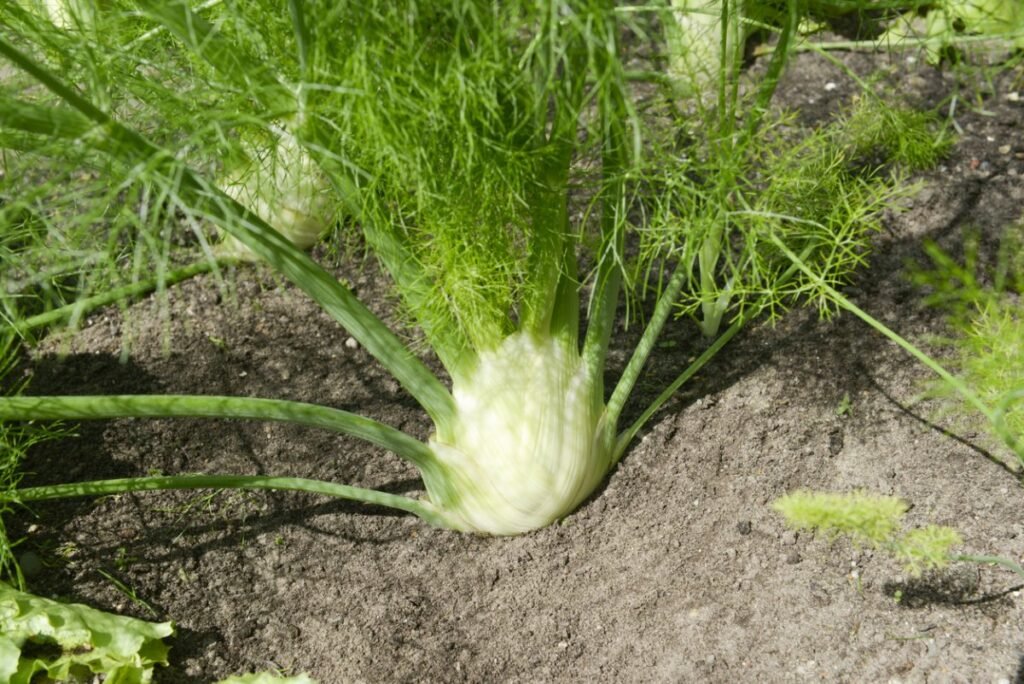
Fennel is a vigorous perennial, capable of reaching up to 6 feet in height when mature. Its growth characteristics contribute to its dominance in gardens:
- Deep, Extensive Roots: Fennel has a taproot system that competes aggressively for nutrients and water.
- Tall, Dense Foliage: Its feathery fronds cast significant shade, potentially reducing sunlight for neighboring herbs.
- Allelopathic Properties: Fennel produces chemicals in its roots and leaves that can inhibit the growth of other plants.
These factors make fennel a high-maintenance companion, often outcompeting herbs like basil, thyme, and dill if planted too close.
The Allelopathic Effect
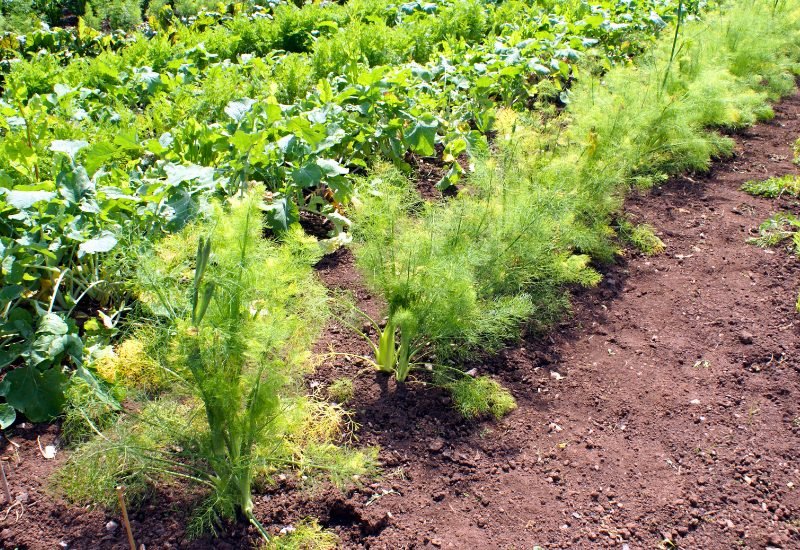
One of the main reasons fennel is considered incompatible with other herbs is its allelopathy—a natural chemical defense mechanism:
- What It Is: Allelopathy occurs when a plant releases compounds into the soil or air that negatively affect the growth, germination, or health of nearby plants.
- Fennel’s Chemicals: Fennel releases substances that suppress seed germination and slow growth in certain herbs and vegetables.
- Impact on Garden Health: Even vigorous herbs can struggle if planted near fennel, leading to stunted growth, fewer blooms, and reduced flavor intensity.
Expert Insight: While allelopathy is more pronounced in young seedlings, mature plants can still experience reduced growth when located near fennel.
Herbs That Suffer When Planted Near Fennel
Some of the most common herb companions that struggle alongside fennel include:
- Basil: May become leggy and produce fewer leaves.
- Cilantro/Coriander: Slower germination and weak growth.
- Parsley: Reduced leaf size and vigor.
- Dill: Competes for similar nutrients, leading to stunted growth.
- Thyme and Oregano: May tolerate fennel somewhat but can suffer long-term stress if planted too close.
Tip: Fennel’s impact is especially detrimental in smaller garden beds or containers where competition for space and nutrients is high.
Why Some Gardeners Still Plant Fennel
Despite these challenges, fennel remains popular due to its culinary, medicinal, and ornamental value:
- Culinary Uses: Fronds for garnishes, seeds for flavoring, and bulbs for roasting or salads.
- Pollinator Attraction: Flowers attract beneficial insects like bees and predatory wasps.
- Medicinal Properties: Traditionally used for digestion, respiratory health, and inflammation.
Key Consideration: While fennel has many benefits, gardeners must strategically isolate it to prevent negative interactions with other herbs.
How to Grow Fennel Safely in Your Herb Garden
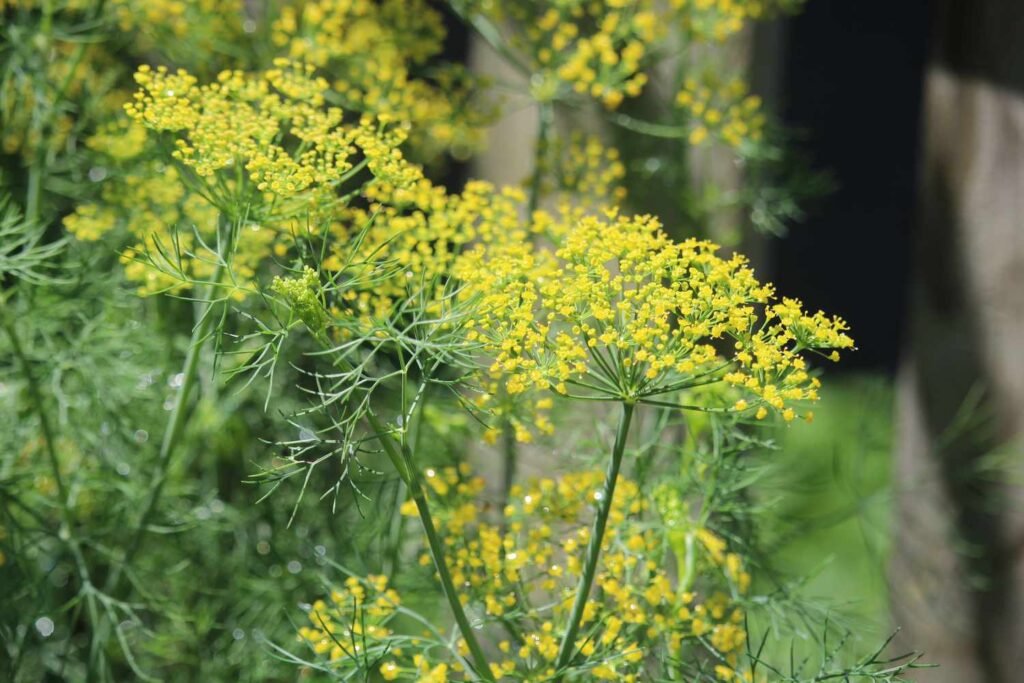
To enjoy fennel without harming other herbs, follow these cultivation strategies:
1. Dedicated Planting Area
- Separate Beds: Plant fennel in a distinct herb bed or raised container.
- Distance: Maintain at least 2–3 feet of space between fennel and other herbs to minimize allelopathic effects.
- Barriers: Consider using garden edging or physical barriers to prevent root spread.
2. Container Gardening
- Benefits: Containers allow full control over soil, nutrients, and root spread.
- Pot Size: Choose a large, deep container for fennel to support its taproot and tall growth.
- Placement: Position containers where the tall fronds won’t shade nearby herbs.
3. Companion Planting Alternatives
While fennel is incompatible with most culinary herbs, it can coexist with:
- Brassicas: Cabbage, broccoli, and kale benefit from fennel’s insect-repellent properties.
- Carrots and Dill (with caution): Can tolerate proximity if sufficient space and nutrients are provided.
- Ornamental Flowers: Sunflowers, marigolds, and cosmos can complement fennel visually without competition issues.
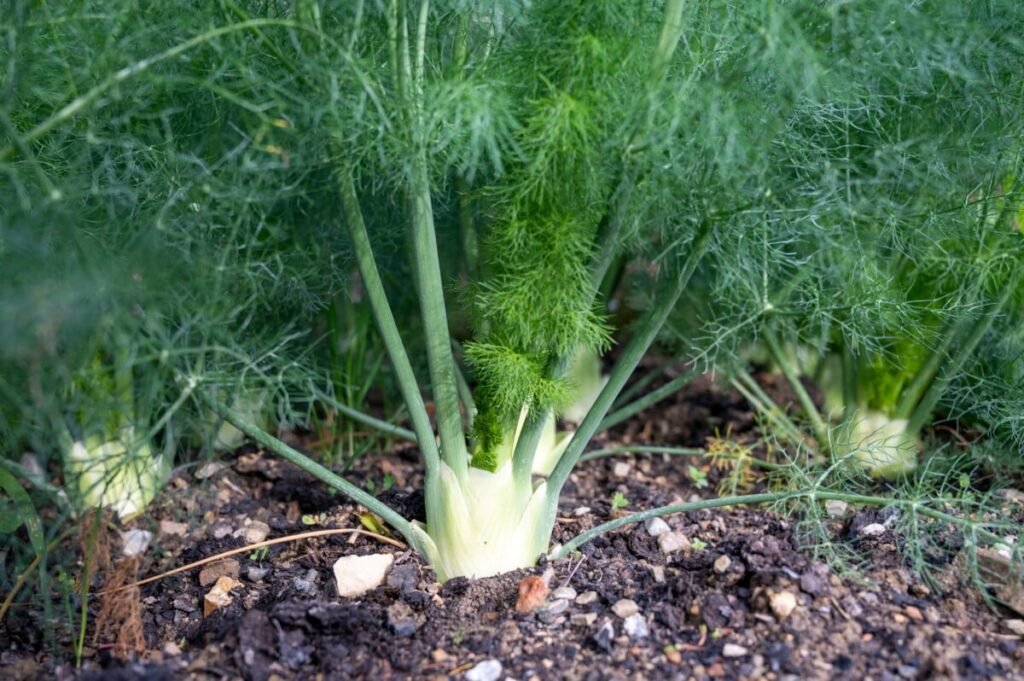
Expert Insight: Knowing compatible companions allows gardeners to incorporate fennel without sacrificing the health of other plants.
Soil and Care Considerations
Fennel thrives under the following conditions:
- Well-Draining Soil: Avoid waterlogged roots that can increase stress and exacerbate competition.
- Full Sun: At least 6–8 hours daily for robust growth.
- Regular Fertilization: Balanced fertilizer supports rapid growth and reduces aggressive competition for nutrients.
- Consistent Watering: Deep watering encourages strong roots but avoid overwatering to prevent fungal issues.
By maintaining optimal growing conditions, fennel can flourish without unduly harming neighboring plants.
Common Mistakes When Growing Fennel
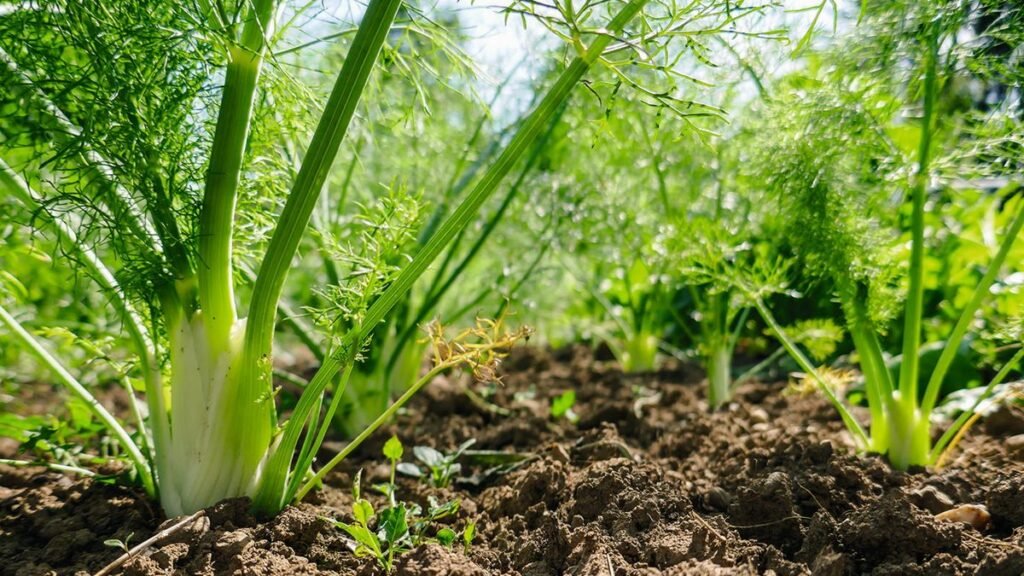
- Planting Too Close to Other Herbs: Leads to stunted growth and poor yields for both fennel and its neighbors.
- Ignoring Root Spread: Fennel’s taproots can invade nearby beds, limiting space for other plants.
- Overcrowding: Tall, dense foliage shades smaller herbs, reducing their vigor.
- Neglecting Pruning: Untamed growth can overwhelm gardens visually and physically.
- Not Using Containers: Planting fennel directly in shared beds increases competition and allelopathic effects.
Additional Benefits of Isolating Fennel
Separating fennel from other herbs doesn’t just protect your garden—it offers additional advantages:
- Maximized Harvest: Healthy fennel produces full-sized bulbs, robust fronds, and abundant seeds.
- Pest Management: Isolated fennel can attract beneficial insects without putting other herbs at risk.
- Aesthetic Control: Keeps tall fennel fronds from overshadowing low-growing herbs, maintaining a neat, visually appealing garden.
Tip: Use vertical gardening techniques, like trellises or plant supports, to further manage fennel’s height and prevent shading.
Conclusion
While fennel is a versatile and rewarding herb, it is a poor companion for most other herbs due to its vigorous growth, root competition, and allelopathic effects. Planting fennel too close to basil, parsley, cilantro, or thyme can result in stunted growth, fewer blooms, and diminished flavor.
To garden successfully with fennel:
- Provide Isolation: Use separate beds, raised containers, or sufficient spacing.
- Monitor Growth: Regular pruning and care prevent overcrowding.
- Choose Compatible Companions: Plant fennel near brassicas, some flowers, or in dedicated pollinator gardens.
- Maintain Optimal Conditions: Well-draining soil, adequate sunlight, and consistent watering ensure healthy growth.
By respecting fennel’s natural tendencies and planning your herb garden strategically, you can enjoy its culinary, medicinal, and ornamental benefits without compromising the health and productivity of your other herbs. Proper isolation is the key to a thriving, harmonious garden where every plant flourishes.
